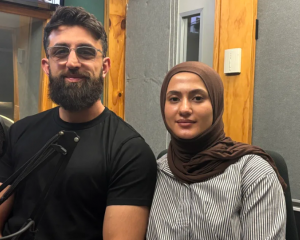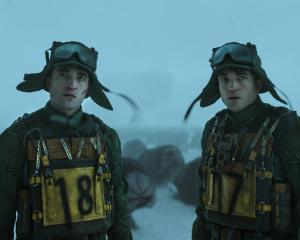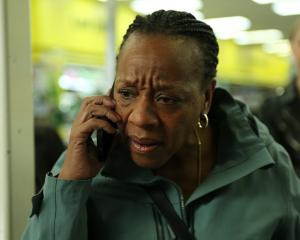
Uberto Pasolini likes to say he has been thinking about adapting The Odyssey for 30 years — 20 years longer than it took Odysseus to win the Trojan war. The 67-year-old Italian film-maker, who won a Bafta for producing The Full Monty, first approached Ralph Fiennes to play Odysseus in 2011, after the actor had made his directorial debut with Coriolanus, believing Fiennes might also be able to direct the film.
They got as far as a location scout in Turkey, where Fiennes, then about to play Prospero in The Tempest, practised his "Such stuff as dreams are made on" speech in an abandoned outdoor amphitheatre at dusk. "It was me and two goats," Pasolini recalls over a video chat. "I get the hair sticking up on the nape of my neck just thinking about it. It was amazing."
Returning from the trip, Fiennes told him: "I can’t do both. I’d love to play Odysseus, but I can’t also direct." Undeterred, Pasolini says he kept on "benignly nagging" the actor about the project whenever they met. Then, in 2022, as Fiennes toured England’s regional theatres with a recital of TS Eliot’s Four Quartets, Pasolini had dinner with the actor in Plymouth.
They again talked about their planned adaptation of The Odyssey. Fiennes thought Pasolini should direct it himself. This time, it was the Italian’s turn to demur. "I can’t direct it," he replied. "This is much bigger than anything else I’ve done." But Fiennes, who had seen Pasolini’s films Machan and Still Life, pushed him to take up the reins of the project. "But what do we do about Penelope?" Pasolini asked. "It should be Juliette, of course," Fiennes said.
"Juliette" was Juliette Binoche, Fiennes’ co-star in Anthony Minghella’s Oscar-winning The English Patient and, before that, Wuthering Heights. "We have a very deep friendship from those two parts, even though we don’t spend that much screen time together," Fiennes says, also over video call.
An approach was made to the French actor, then she and Fiennes met in Georgia, where Fiennes was filming The Menu and Binoche was shooting The Staircase for HBO. Fiennes bought Binoche a copy of Emily Wilson’s translation of The Odyssey; the pair took a selfie and sent it to Pasolini. Binoche was in. "I was emotional, actually," Fiennes says. "Juliette has very strong instincts about what she will or won’t do. So when she said yes, there was a wonderful sense of completion."
The finished film, The Return, was shot in two months in Corfu and just north of Rome for $US20 million. It features no gods, monsters, sirens, cyclops or six-headed monsters, and compacts the last nine books of Homer’s epic poem into a film as lean and sinewy as its hero.

"We did do one very specific thing with the script, which is taking out the gods," says Pasolini, who commissioned a screenplay with the writers Edward Bond and John Collee that was steeped in modern accounts of war. "It was important to us that the guilt that comes out of the wars and his dead companions, that pain, was his own doing."
It was all there in Homer’s poem, where Odysseus cries "as a woman weeps" when recounting the siege of Troy — but a line in which Fiennes’ Odysseus describes Troy as a city that "could not be conquered, only destroyed" was taken from an American captain describing the destruction of the city of Hue during the Vietnam war. That speech was pivotal for Fiennes, who loves playing men enmeshed in the workings of their own conscience, be they the adulterous Maurice Bendrix in The End of the Affair, or Cardinal Lawrence in Conclave.
"I am probably drawn to roles where [there is a] sort of undecided space in someone, where there’s a question mark about who they are and what they’re doing," the actor says.
"Is Odysseus good? Essentially, he’s gone to war and done terrible things to people, and what I got from this script is he carries that on his shoulders. So, he’s not overtly a Greek hero, but he’s trying to claim something. I think the key for this is the scene where he talks around the fire about what it was to destroy Troy. I’ve not been through a war, obviously, but I was 60 when I did this," says Fiennes, now 62. "The bulk of your life is lived. I think a sense of fatigue with life, or a sense of: ‘Well, what’s left now?’ comes to us as we get a bit older. ‘What does it all mean?’ You ask these bigger existential questions and I think all that bled into the imaginative leap I had to make. Even if you haven’t been in wars, that sense of the weight of the past — you can intuit that better."
The scenes with Binoche, in particular, enjoy the resonance of a friendship that spans nearly three decades. Fiennes recalls the first scene they shot together on The Return, where Odysseus and Penelope first meet in a temple. Penelope seems to see through Odysseus’ disguise as a beggar, but does not confront her husband, so horrified is she by his self-dereliction.
"Juliette was so extraordinary," he says. "The depth of remorse and frustration and anguish she suggests were just extraordinary to witness."
They shot the scene over two nights. Pasolini says: "There was a certain strange tension and emotion on set that had to do with the reconnection of these two individuals who had been away from one another for so long. There was a feeling on the set that there was something very, very special going on that went beyond the script."
And for Fiennes? "I just found myself very moved," he says. "Juliette was so extraordinary in that scene, as it should be between actors when you are really open to one another’s energies. But it moved me. It moved me as Odysseus and moved me as Ralph." — The Observer













